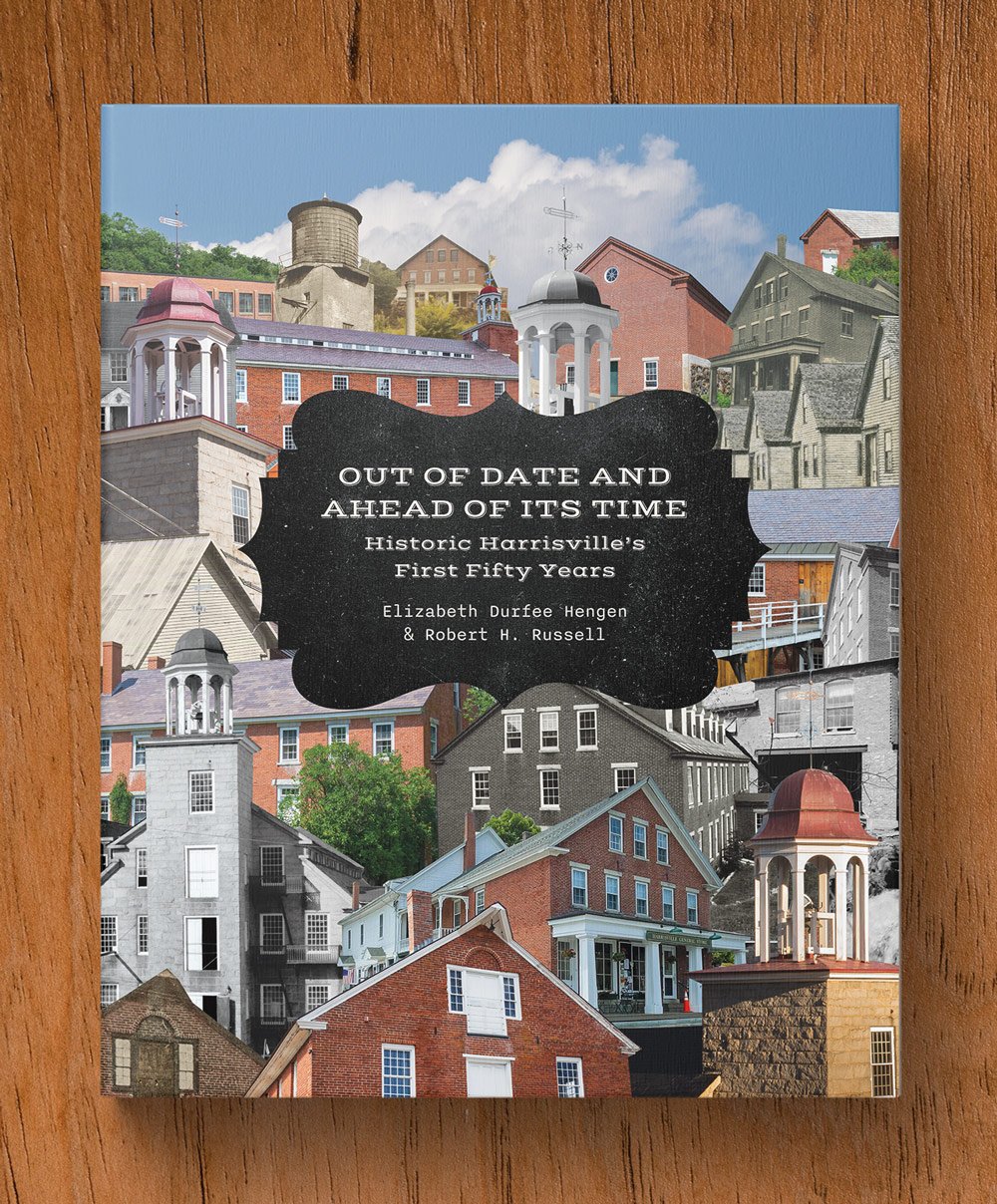
Explore the History of
Historic Harrisville
This new 233-page color hardback documents the history of Historic Harrisville in interviews, photographs, and archival materials. Buy a copy here or at the Harrisville General Store.
About Out of Date and Ahead of Its Time
As for many New England towns, the decline of the textile industry in the twentieth century was devastating for Harrisville. Tucked into the southwestern hills of New Hampshire, the town's primary employer was a mill that in 1970 finally filed for bankruptcy and closed its doors. Yet fifty years later, the village and mill buildings survive-in fact, thrive. Dozens of structures that date to the mid-1800s-including the mill complex, a library, boarding houses, and handsome homes-remain the center of a vibrant town. The village boasts a lively general store, post office, children's center, affordable housing, artist studios, a woolen yarn spinning mill, and hydroelectric and solar power-surrounded by nearly 150 acres of conserved land.
This unusual small-town success is in part a consequence of a radical idea that became Historic Harrisville, Inc. Established the year after Harrisville's mill closed, the organization launched when three friends, still in their twenties, resolved to convert the beleaguered nineteenth-century industrial complex into a modern town where they could continue to live and work. They rallied a small group of farmers, conservationists, disillusioned businessmen, unorthodox lawyers, inspired architects, and all-out optimists, and began inventing their own strain of historical preservation rooted in the character of their village. What began as a gamble soon evolved into a sustainable approach to conservation, one that is now a model for communities across the country.
To celebrate the first five decades of this unlikely organization, Historic Harrisville’s story has finally been set down in full. Written and assembled by preservation specialist Elizabeth Durfee Hengen and conservation expert Robert H. Russell, Out of Date and Ahead of Its Time is an illuminating portrait of this pioneering effort. Weaving interviews, archival material, and choice historical context with full-color photographs, Hengen and Russell explore the origin of the organization and how it maneuvered long odds, necessity, and luck to remain essential for more than fifty years.
A distinctly local story of determination and originality, Out of Date and Ahead of Its Time is a unique tribute to a groundbreaking organization that is responsible for America's most completely preserved mill village. From the untold stories to the triumphs now taken for granted, it is a marvelous bricolage of substantive, creative historic preservation and its transformative potential.
Selected Page Spreads
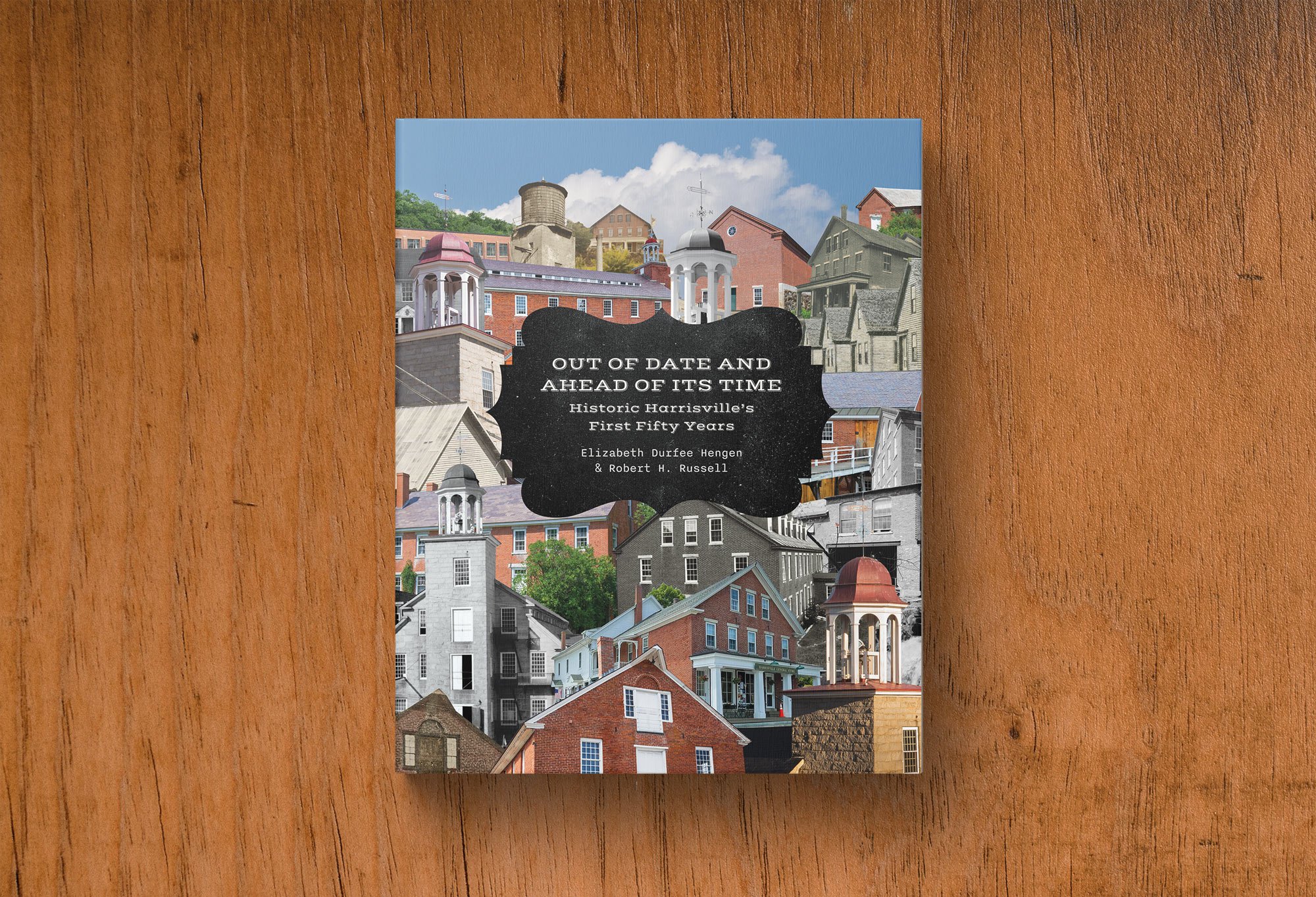
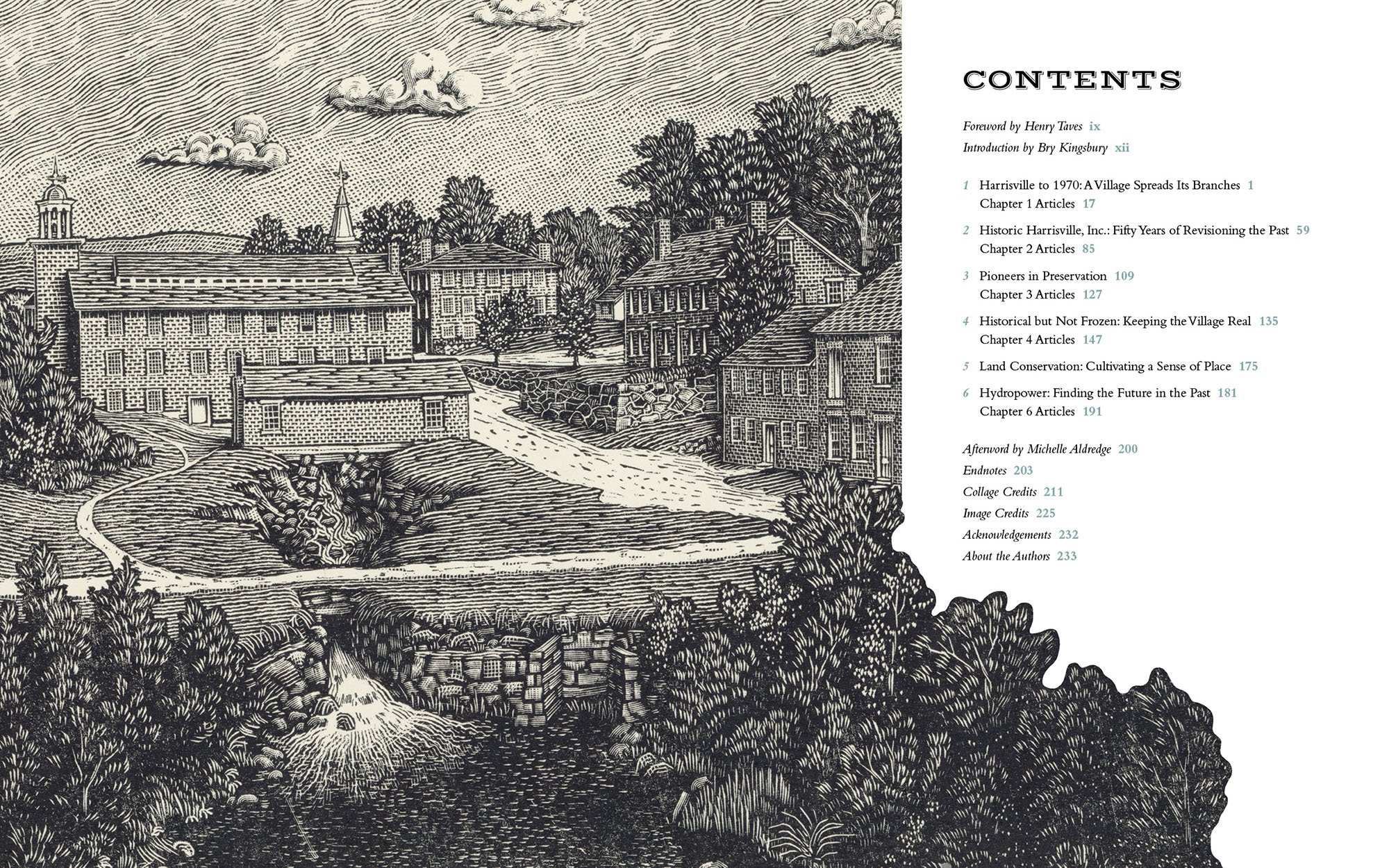
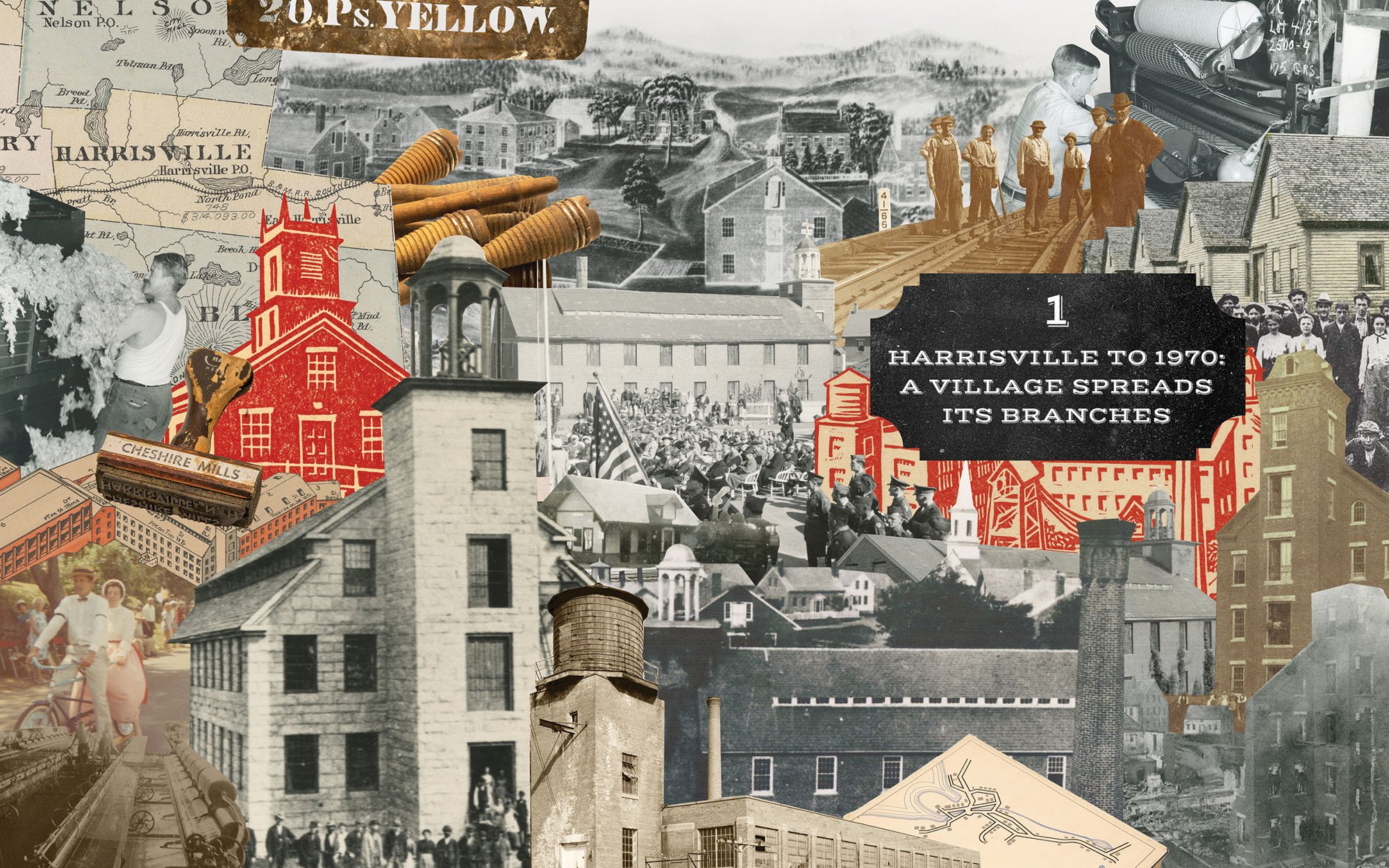
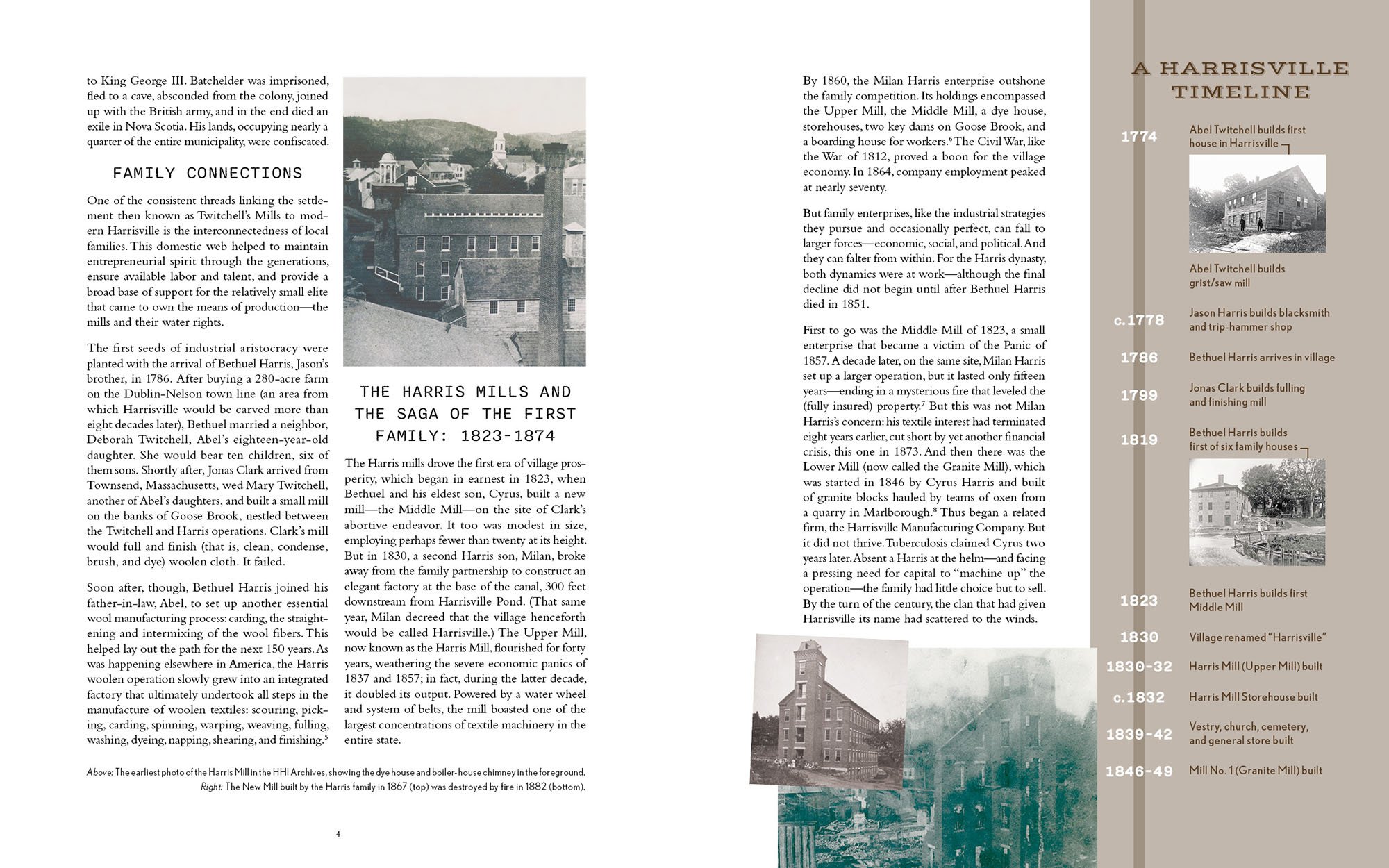
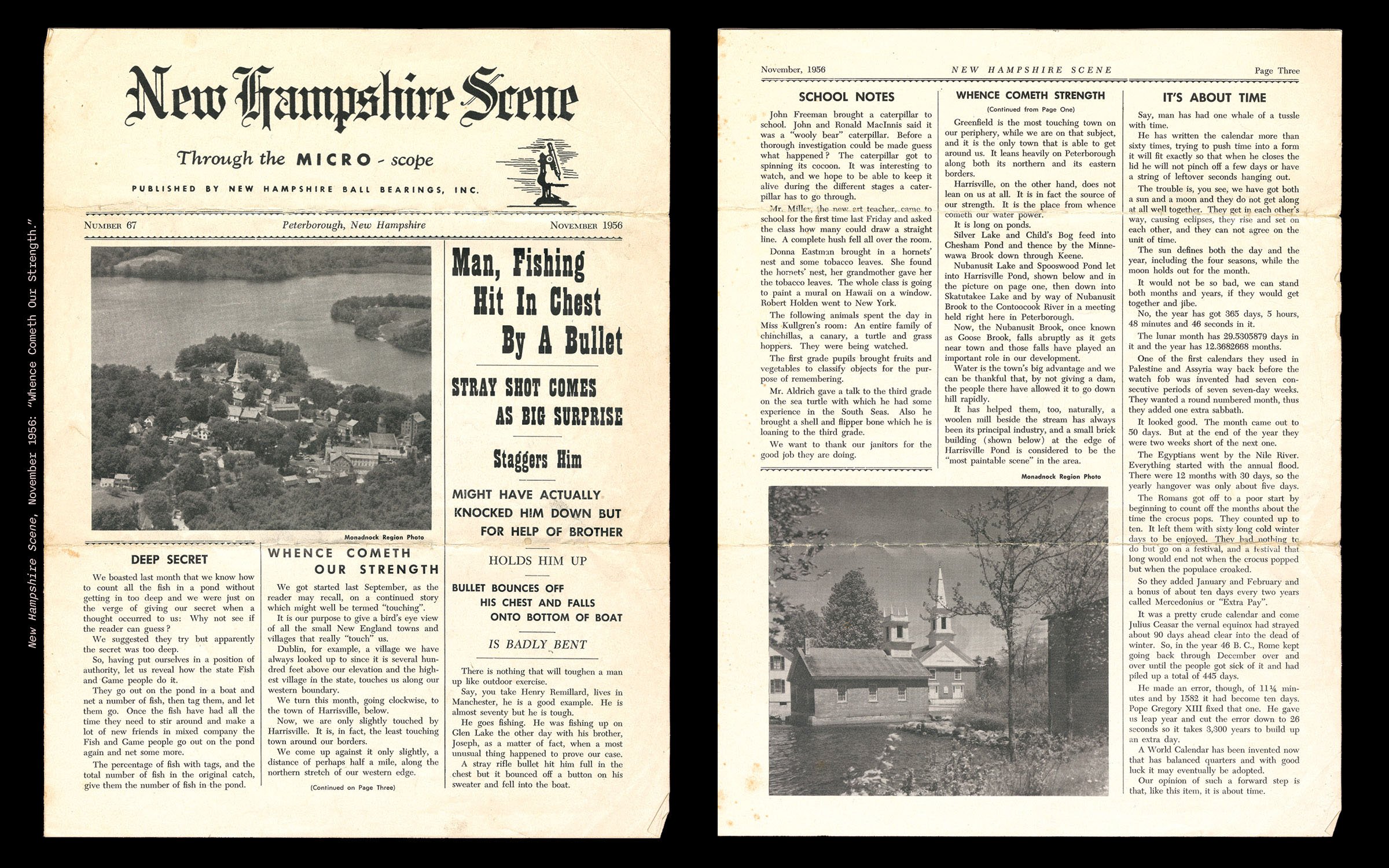
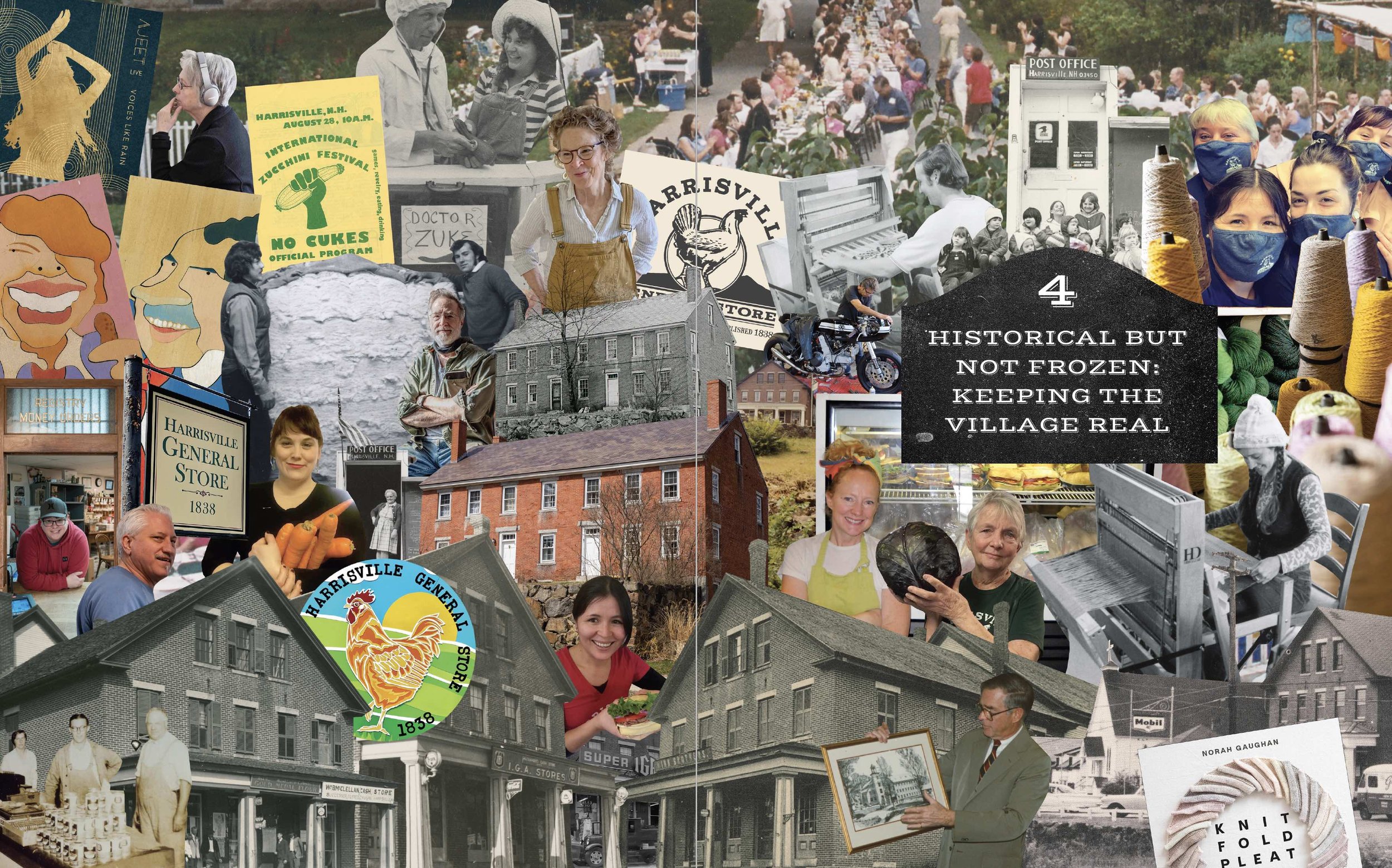
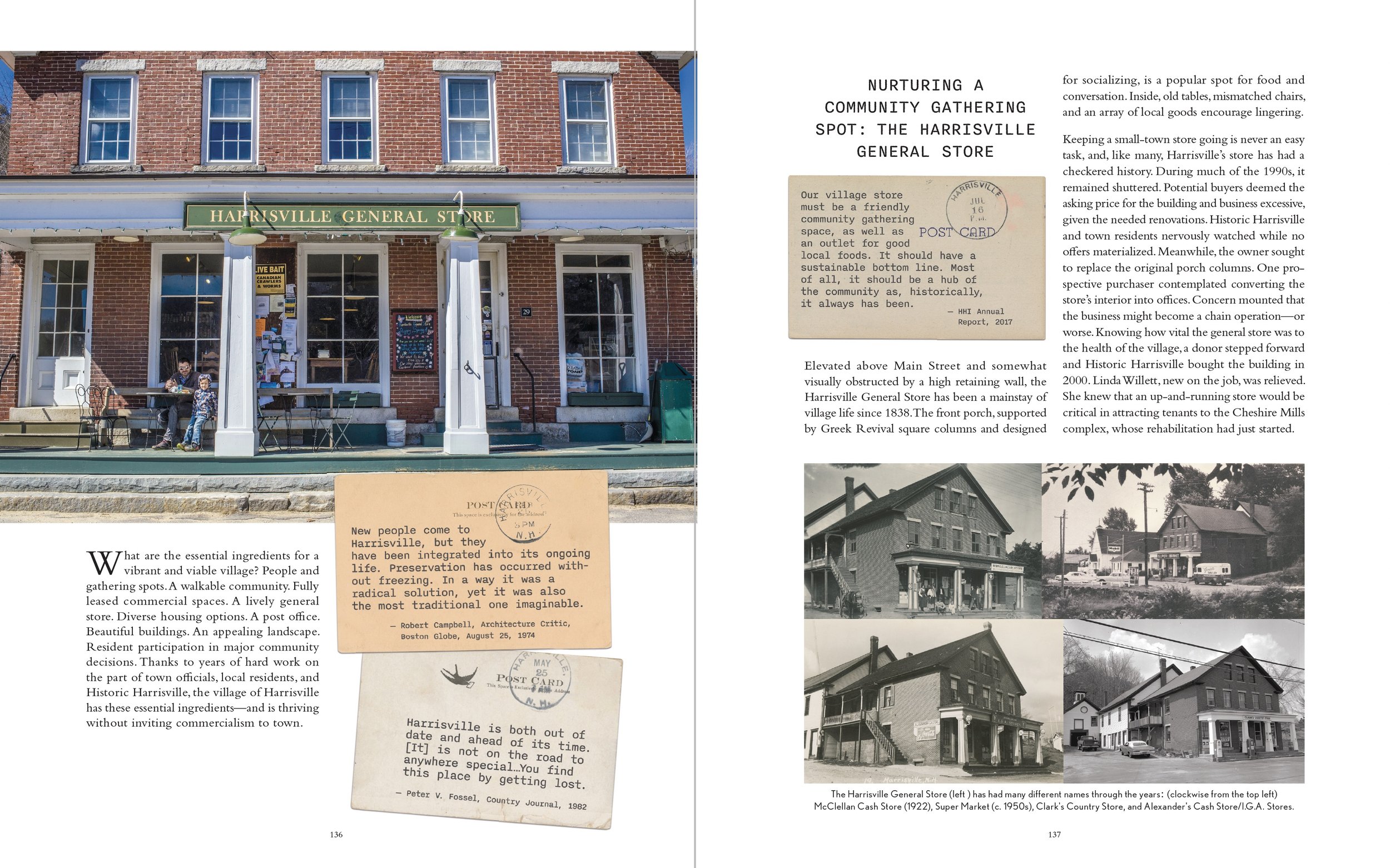
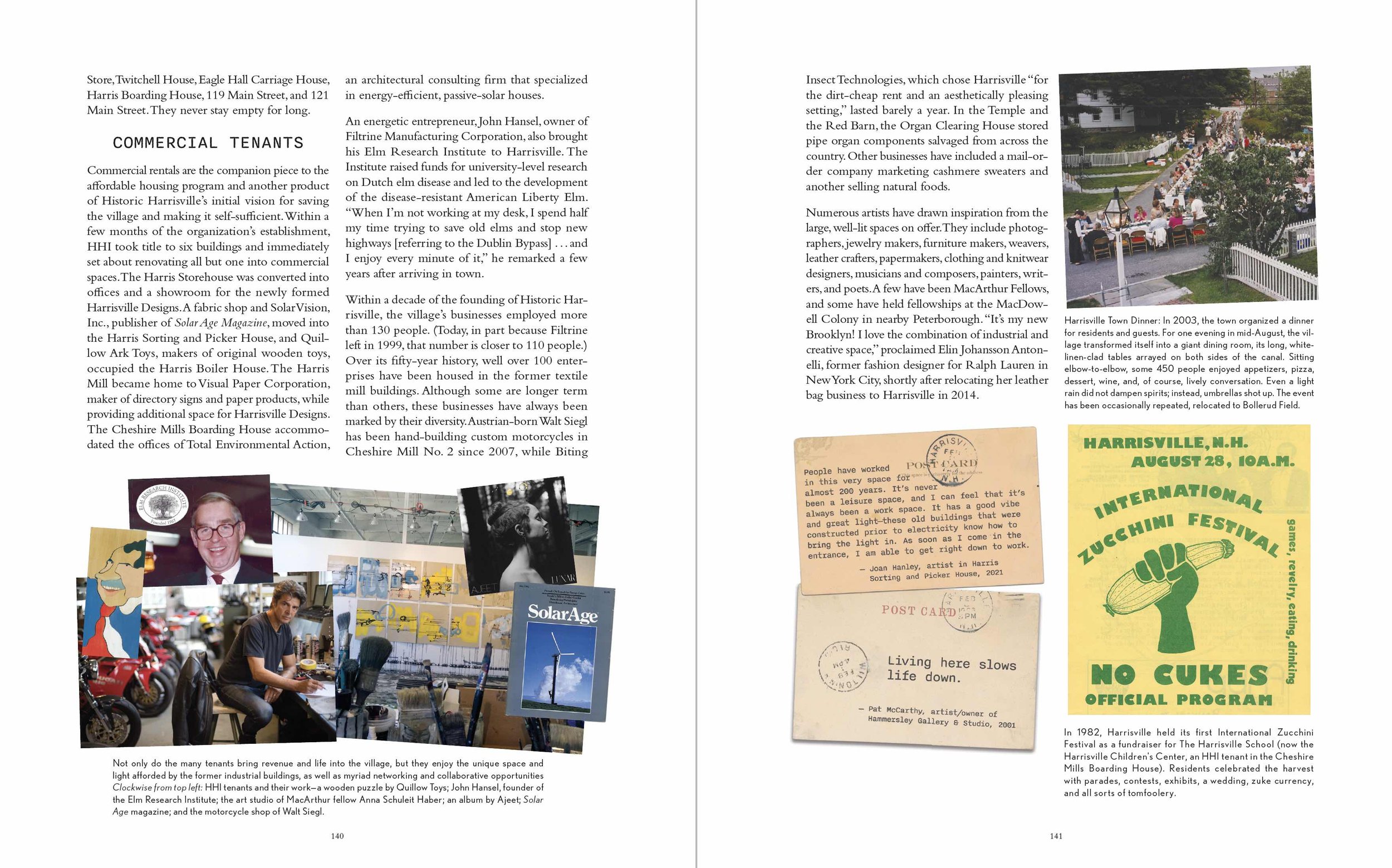
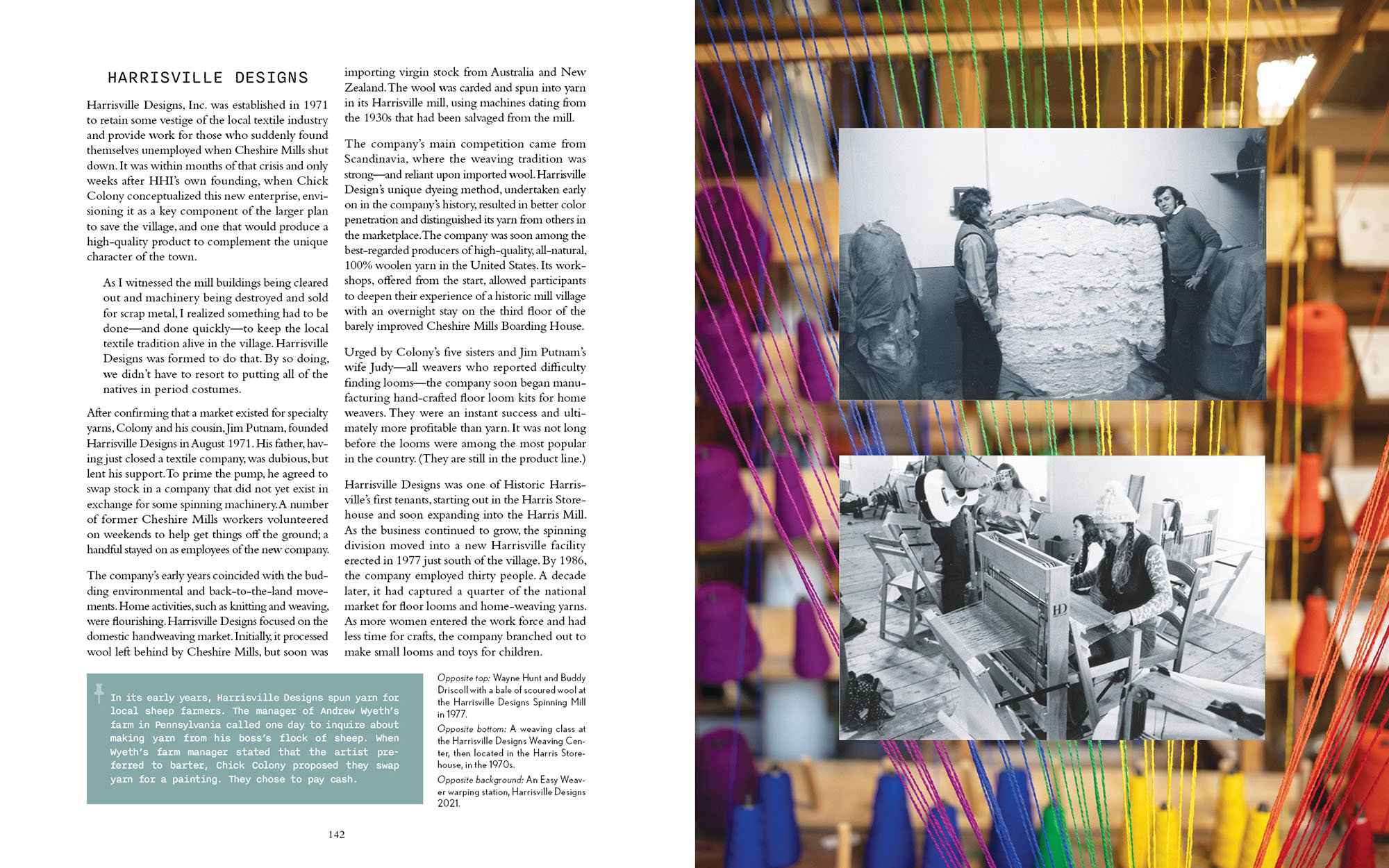
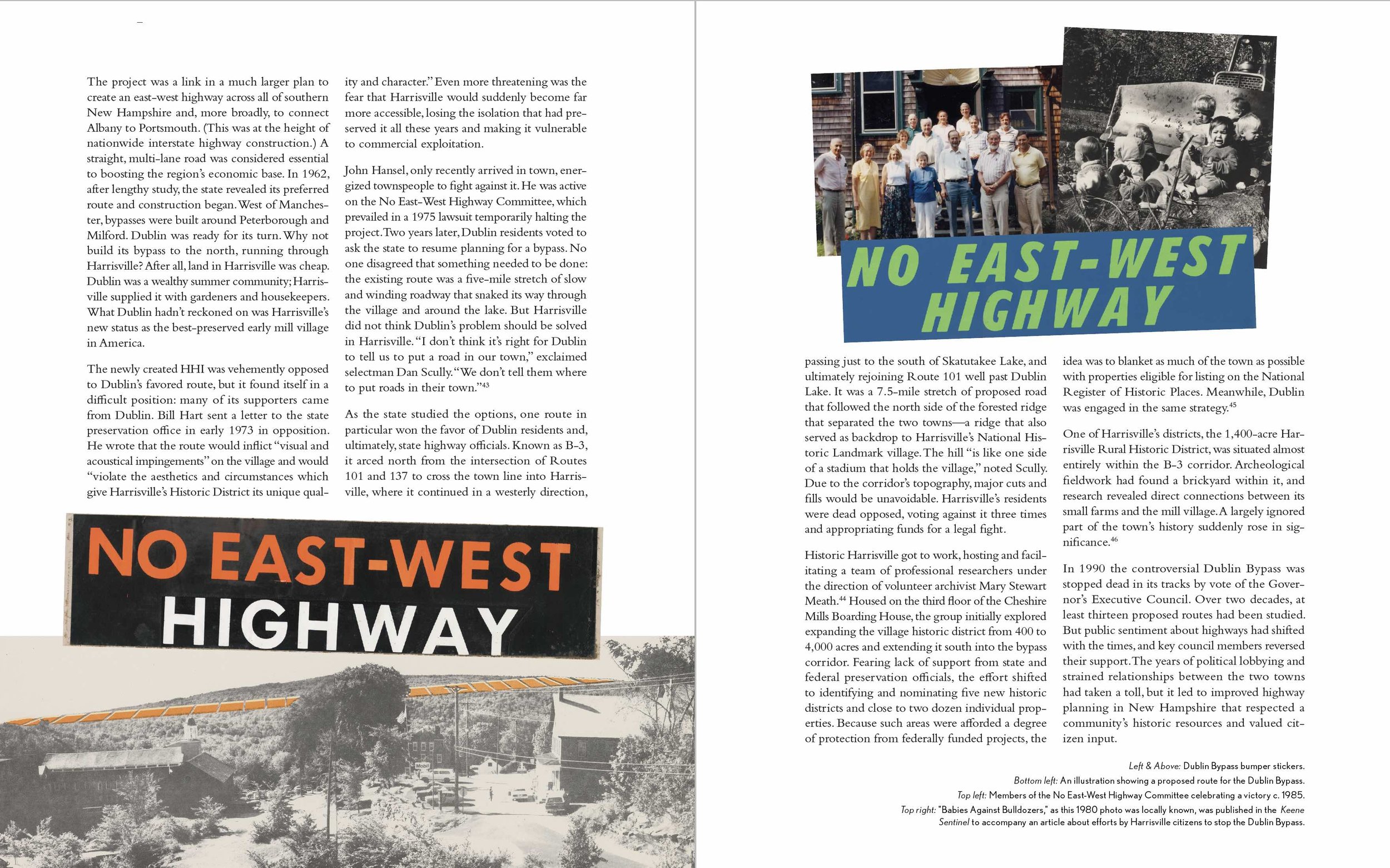
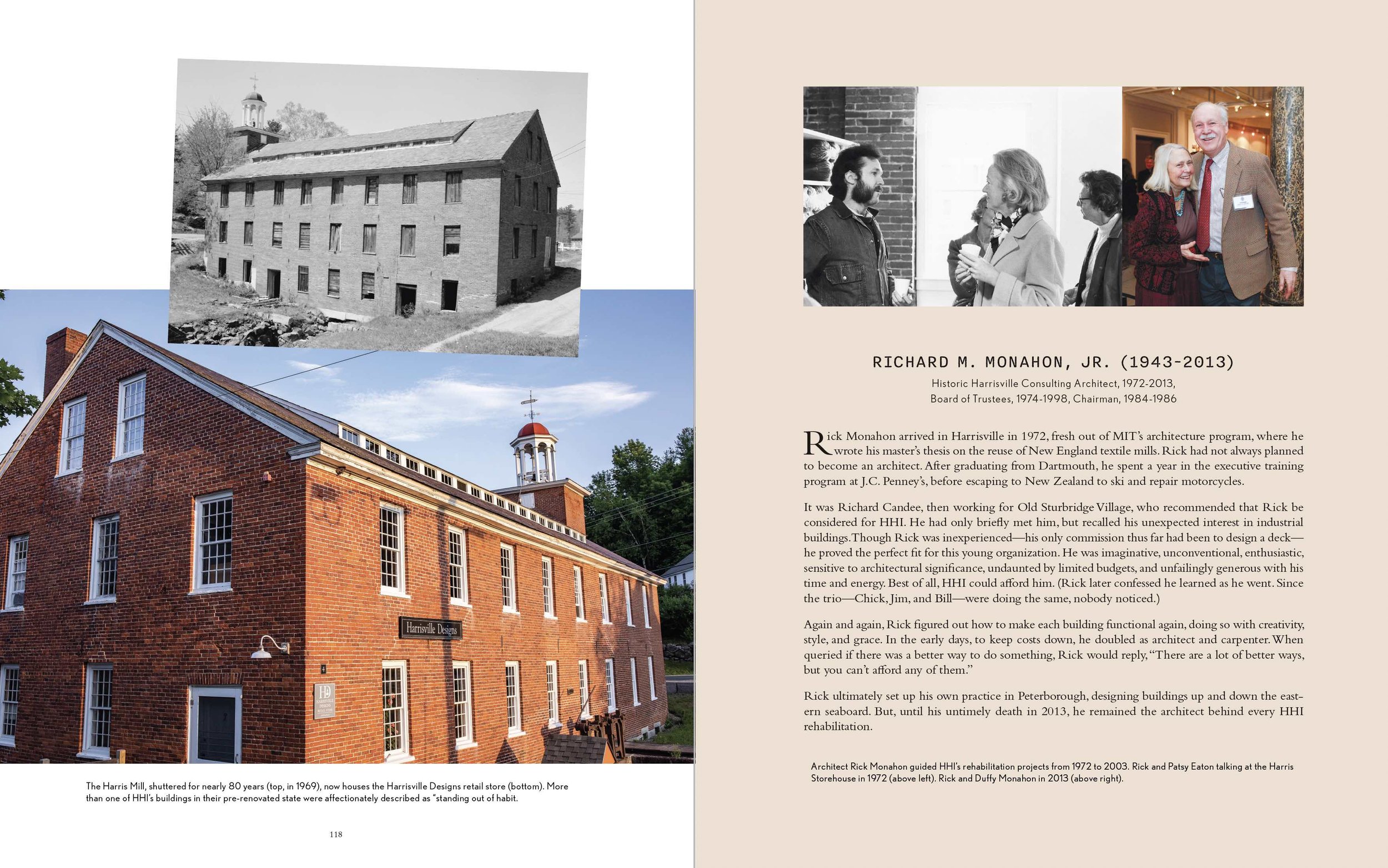
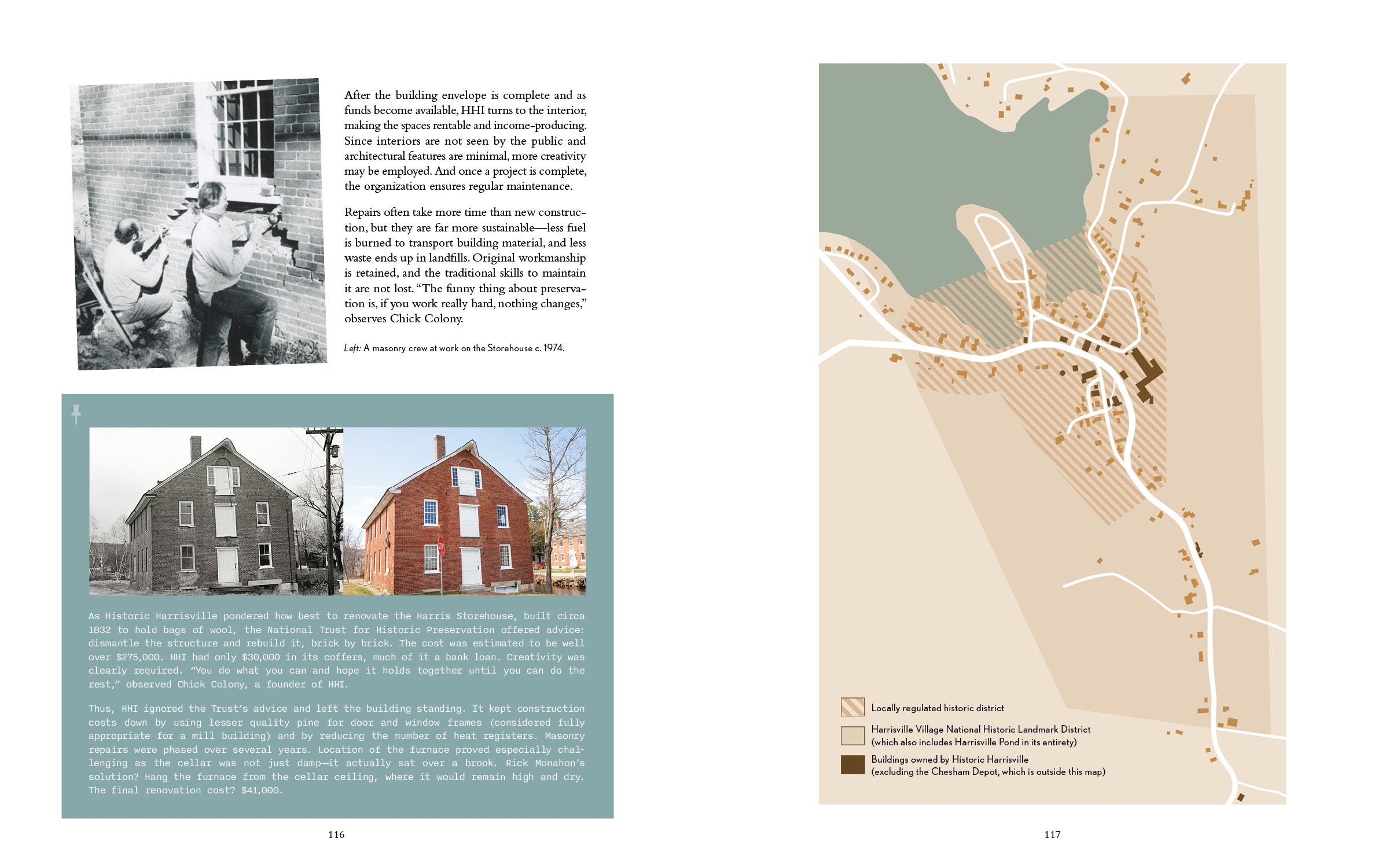
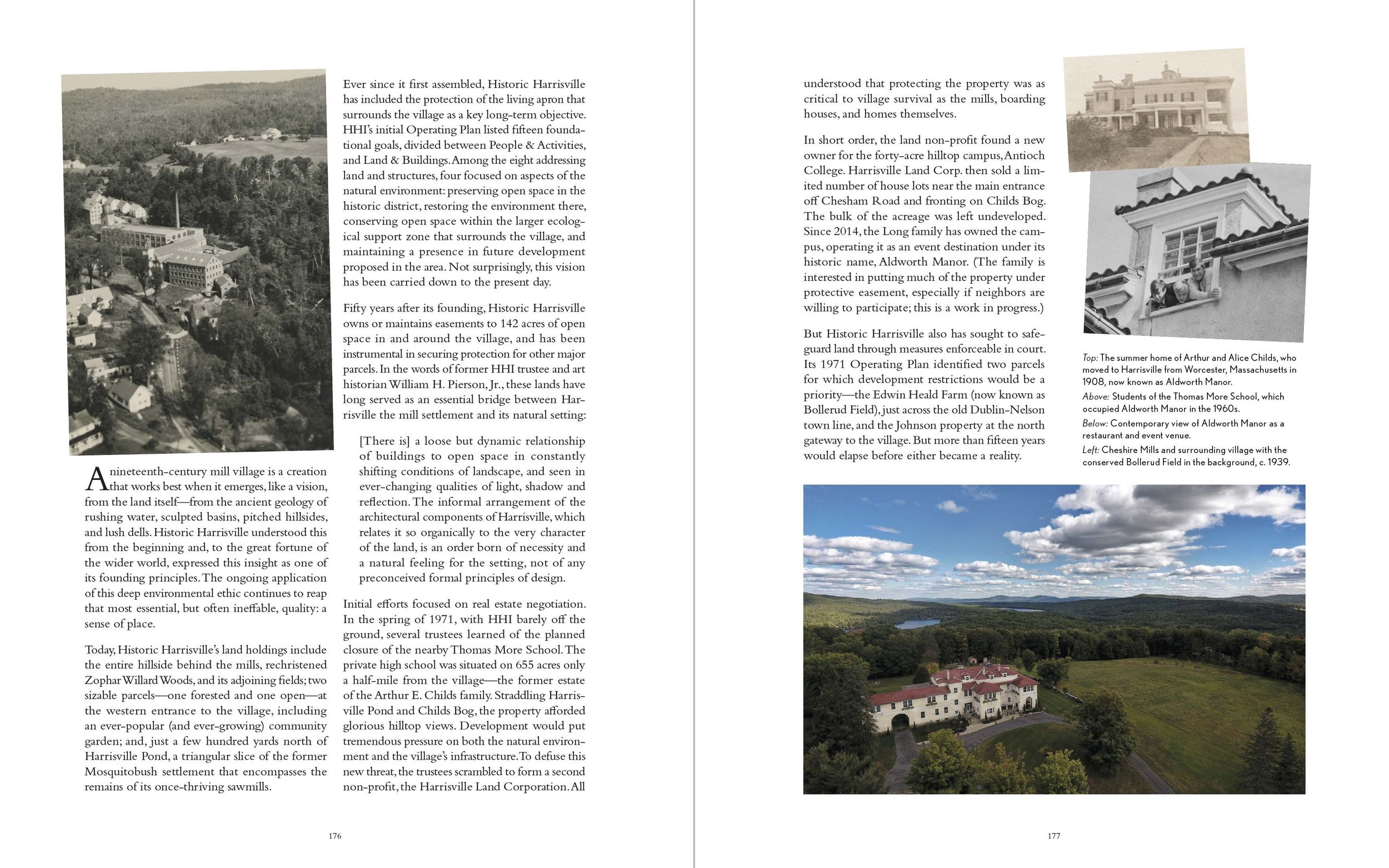
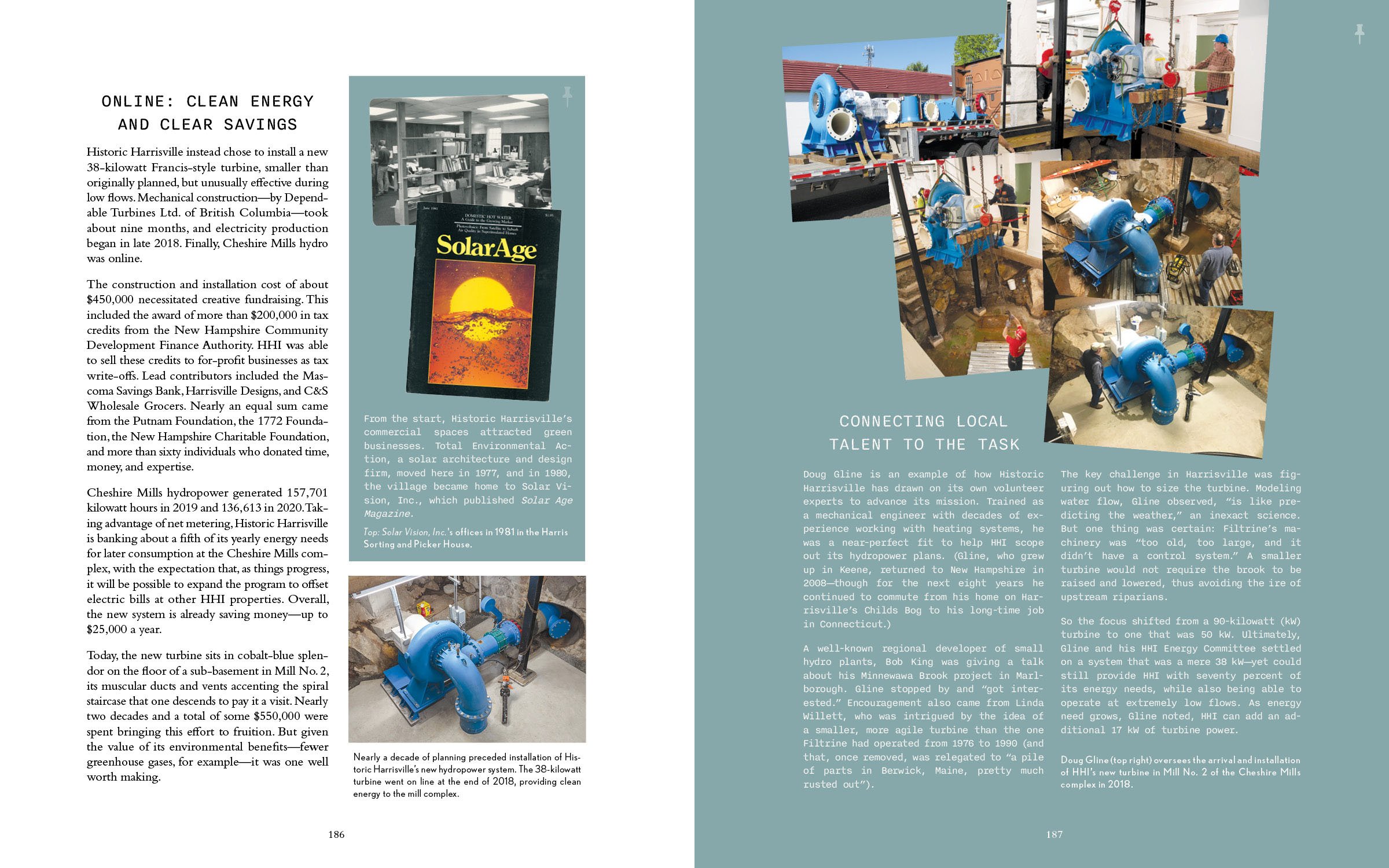
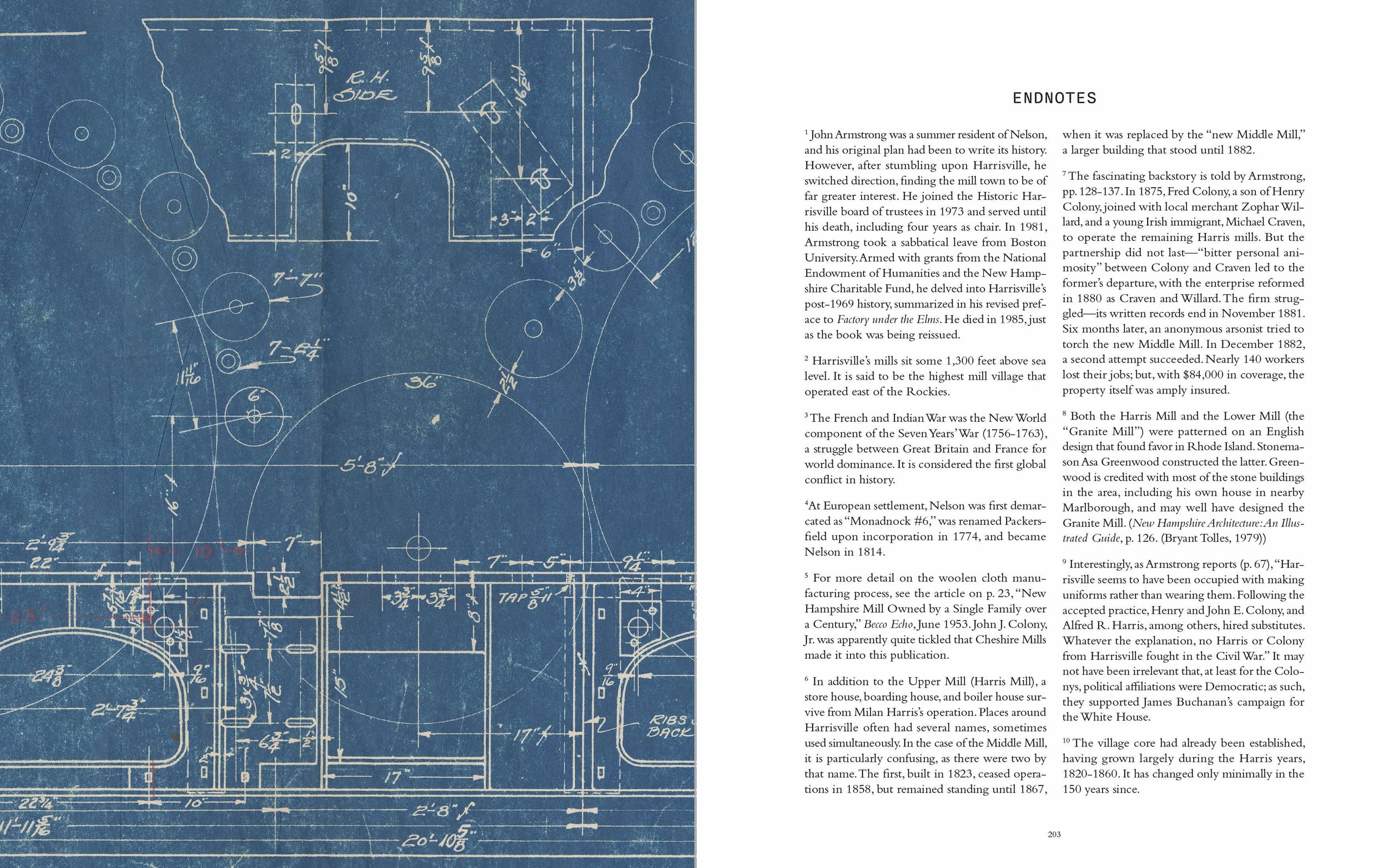
“Historic Harrisville, Inc. represents the second founding of the town by a small group of visionaries.”
Order Your Copy Today
Price includes free domestic shipping!
About the Authors
Elizabeth Durfee Hengen is a preservation consultant with more than forty years of experience in historic preservation planning. Her consulting projects cover the broad spectrum of preservation issues, opportunities, and documentation, among them pioneering initiatives focusing on the cultural landscapes of the Squam and Chocorua lake watersheds and an early study of the tenement housing for Amoskeag Manufacturing Company in Manchester, New Hampshire. Past publications and articles include Capital Views: A Photographic History of Concord, New Hampshire 1850-1930; Life Everlasting, The History, Art and People of Woodlawn Cemetery, 1850-2000; articles for Historical New Hampshire and Forum Journal; Preserving Community Character, A Preservation Planning Handbook for New Hampshire; and walking tours and design guidelines for communities throughout New Hampshire. She holds a BA in art and architectural history from Harvard College. She resides in Concord, New Hampshire.
Robert H. (Rusty) Russell is an environmental lawyer and policy and communications consultant. As faculty in Tufts University’s graduate Department of Urban and Environmental Policy and Planning (UEP), he co-directed its interdisciplinary water policy program, while teaching environmental law, water and air policy, and field research. Before that, he served as an attorney-advocate and communications director for the Conservation Law Foundation. He also has been a journalist and corporate lawyer, and directed a state health policy program. He holds degrees from Amherst College and Harvard Law School. Publication topics include the future of offshore wind energy, the impacts of affordable housing on environmental protection, the impact of intermittent water supply in developing nations, and the use of carbon capture and sequestration as a strategy to combat climate destabilization. He resides in Cambridge, Massachusetts.
“Perhaps the most unique thing about Harrisville is that it’s lovely long after most towns have ceased to be lovely.”
—Richard M. Vogel, curator of heavy machinery and civil engineering at the Smithsonian Institution, quoted in the Keene Sentinel, Aug. 17, 1968
“We’ll find a way to keep it [Harrisville] as it is—not because it’s old, but because it’s good.”
—Warren Thayer, mill foreman, quoted in the New York Times, March 28, 1971
“[Harrisville IS] one of the best preservation efforts in the country. They managed to preserve the village as a working community. They didn’t just make a museum of it.”
—Dr. William H. Pierson, professor of studio art and art history, Williams College, quoted In the Keene (N.H.) Sentinel, May 21, 1999



